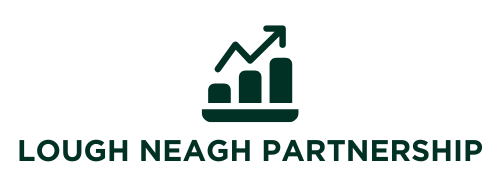Table of Contents
ToggleNavigating the world of personal finance can feel like trying to find your way out of a maze blindfolded. With so many twists and turns, it’s easy to lose track of where you’re headed. But fear not! Market experts have cracked the code and are ready to share their top tips to help anyone level up their financial game.
From budgeting hacks that won’t make you feel like you’re living on ramen noodles to investment strategies that could make even your grandmother proud, these insights are gold. Get ready to transform your money habits and maybe even have a chuckle or two along the way. After all, who said finance had to be boring? Dive in and discover how to make your money work for you while keeping your sanity intact.
Overview of Personal Finance
Personal finance involves managing one’s finances through budgeting, saving, investing and planning for the future. Understanding key principles is essential for effective financial management. Budgeting helps track income and expenses, ensuring that priorities align with financial goals.
Saving money regularly provides a safety net for emergencies and future needs, enabling better control over finances. Establishing an emergency fund that’s three to six months’ worth of living expenses allows for financial stability, especially during uncertain times.
Investing offers opportunities for wealth growth, making it crucial to understand different asset classes like stocks, bonds and real estate. Diversifying investments mitigates risk while maximizing potential returns.
Retirement planning forms another fundamental aspect of personal finance. Contributing a percentage of income into retirement accounts, like 401(k)s or IRAs, can yield significant tax advantages. Starting early enhances the compounding effect, leading to greater financial security in later years.
Debt management plays a critical role in personal finance. Prioritizing high-interest debt, such as credit cards, often leads to faster financial freedom. Employing strategies like the snowball or avalanche method can simplify debt repayment while motivating progress.
Tax planning cannot be overlooked; it influences overall financial health. Understanding deductions and credits lets individuals optimize their tax liabilities, putting more money in their pockets. Staying informed about tax laws ensures compliance while maximizing potential savings.
Focusing on financial education empowers individuals. Engaging with resources like books, workshops or financial advisors boosts knowledge and confidence in making sound financial decisions. Maintaining a proactive approach ensures long-term financial success and peace of mind.
Importance of Financial Literacy
Financial literacy plays a crucial role in successful money management. It empowers individuals to make informed decisions regarding their finances.
Understanding Financial Terms
Grasping financial terminology significantly enhances financial confidence. Familiarity with terms such as assets, liabilities, and equity simplifies the management of financial situations. Recognizing different investment vehicles, including stocks, bonds, and mutual funds, helps individuals diversify portfolios effectively. Comprehending credit scores and interest rates is vital for making informed borrowing decisions. Realizing how inflation impacts purchasing power aids in long-term planning. Developing a robust financial vocabulary ultimately leads to smarter decision-making.
Setting Financial Goals
Establishing clear financial goals guides effective financial planning and prioritization. Short-term objectives may include saving for vacations or paying off debts, while long-term goals often center around retirement or home ownership. Identifying specific, measurable, achievable, relevant, and time-bound (SMART) criteria supports goal clarity. Tracking progress and adjusting goals fosters accountability and motivation. Integrating these goals into a comprehensive budget helps ensure alignment with financial objectives. Successful goal setting lays the groundwork for sustainable financial habits and long-term success.
Expert Recommendations
Experts in personal finance provide practical insights to enhance financial management. Focusing on budgeting, saving, and investing can significantly improve one’s financial situation.
Budgeting Tips
Creating a detailed budget often leads to improved financial awareness. Track income and expenses meticulously to identify spending patterns. Prioritizing essential expenses over discretionary spending fosters smarter choices. Allocate funds for both short-term needs and long-term goals. Reviewing the budget regularly helps adjust to changing circumstances, ensuring alignment with financial objectives. Optimize expenses by using budgeting tools that provide insights into various spending categories.
Saving Strategies
Establishing an emergency fund stands as a fundamental saving strategy. Having three to six months’ worth of expenses saved increases financial security. Automating savings simplifies the process, allowing funds to be diverted to savings accounts without effort. Target specific goals, such as vacations or large purchases, to motivate consistent saving habits. Additionally, utilizing high-yield savings accounts maximizes interest earned on savings, enhancing overall growth.
Investment Advice
Understanding different investment vehicles aids in building a diverse portfolio. Stocks, bonds, and mutual funds each serve distinct purposes in investment strategies. Prioritizing long-term investments often yields more significant returns. Drip-feeding small amounts into investments, known as dollar-cost averaging, minimizes market volatility’s impact. Researching asset classes and staying informed about market trends makes for informed decisions. Lastly, consulting financial advisors can provide tailored investment guidance based on individual goals.
Common Mistakes to Avoid
Failing to track expenses leads to unexpected financial shortfalls. Individuals often overlook the importance of understanding where their money goes, which hampers budget creation. Ignoring an emergency fund creates vulnerability in cash flow during unforeseen circumstances. Establishing this fund, with three to six months’ worth of expenses, provides essential financial security.
Relying solely on credit for emergencies complicates debt situations. Many individuals fall into a cycle of using credit cards without addressing existing debts, resulting in high-interest payments. Prioritizing high-interest debt instead yields substantial long-term savings. Tackling these debts first reduces financial burdens and enhances overall fiscal health.
Neglecting retirement savings can dramatically impact future security. Starting contributions early, even a small amount, accumulates wealth through compound interest over time. Investors frequently dismiss understanding their investment vehicles, which can lead to poor financial choices. Familiarity with various options, such as stocks and bonds, empowers informed decision-making.
Setting vague financial goals creates ambiguity in budgeting efforts. Employing the SMART criteria—specific, measurable, achievable, relevant, and time-bound—ensures clarity and direction. Engaging in continuous financial education broadens knowledge and skills. Individuals who prioritize learning about financial concepts significantly improve their management capabilities.
Skimping on regular budget reviews prevents adaptation to lifestyle changes. Circumstances fluctuate; thus, flexibility in budgeting remains crucial. Moreover, avoiding professional financial advice limits access to tailored strategies. Consulting with financial advisors delivers expert insights that align with personal goals and improve investment outcomes.
Personal finance doesn’t have to be daunting. By implementing the expert tips shared, individuals can take charge of their financial journeys with confidence. Embracing budgeting strategies and understanding investment options can lead to greater financial stability and growth.
Establishing clear goals and maintaining a proactive approach to savings and debt management sets the foundation for long-term success. With continuous education and the willingness to adapt, anyone can cultivate healthy financial habits that not only secure their future but also make the process enjoyable. Taking small steps today can lead to significant rewards tomorrow.








